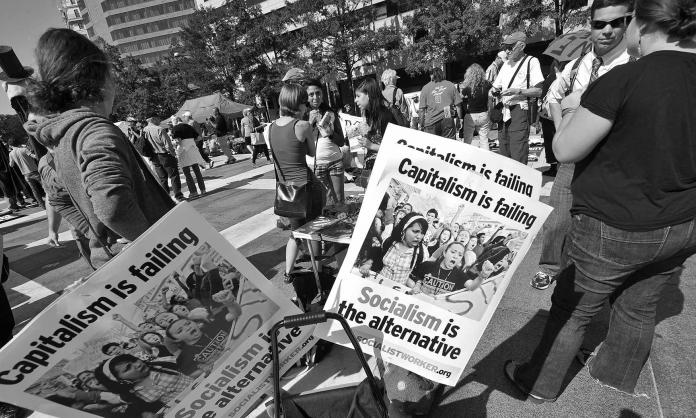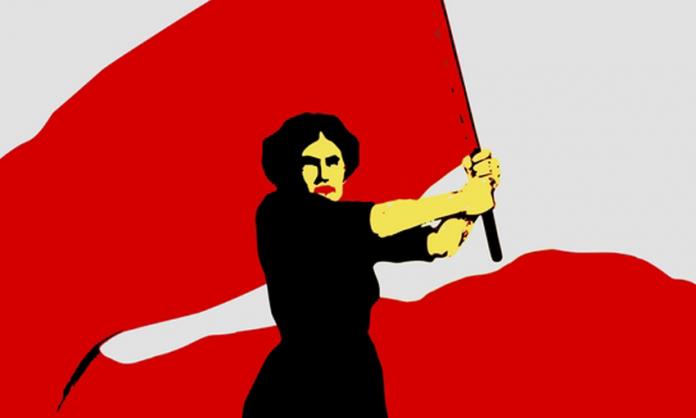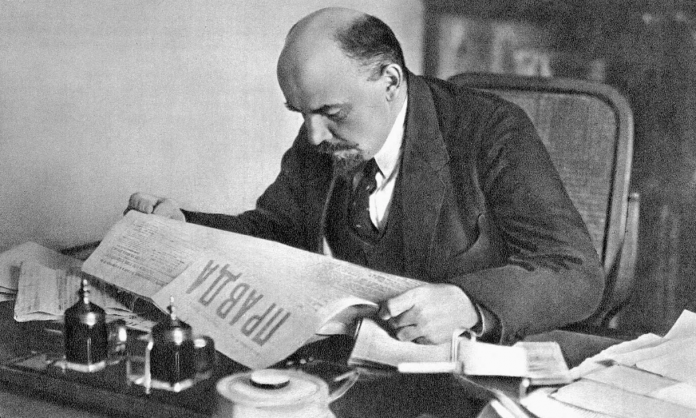In February 1917, as Europe was tearing itself apart in the carnage of World War One, a socialist youth group in the Italian region of Piedmont released a pamphlet titled La città futura (The city of the future). The pamphlet was written by 26-year-old Antonio Gramsci, later to become famous as a pioneer of the Italian communist movement and author of the Prison Notebooks, written during his long confinement under the fascist regime of Benito Mussolini.
In La città futura, Gramsci launched a bitter tirade against indifference. “Indifference is a powerful force in history”, he wrote. “It operates passively, but it operates nonetheless ... The fate that appears to dominate history is nothing but the deceptive appearance of this indifference, of this absenteeism. Few hands, subject to no oversight, weave the collective cloth, and the multitude ignores it all, because it doesn’t care.
“I hate the indifferent. I believe, as [nineteenth century German poet and playwright] Friedrich Hebbel did, that ‘living means being partisan’ ... I live. I am partisan. This is why I hate those who don’t take part. This is why I hate the indifferent.”
What can we take from this today? First, a qualification: it’s not really true, as Gramsci implies, that the ruling class (those “few hands” who “weave the collective cloth”) get away with their crimes and shape history in accordance with their whims primarily because working-class people (“the multitude”) simply don’t care. If it were, then winning any radical change to the existing order would be impossible.
Most of the time, the majority of people go about their daily lives in a way that accords with the requirements of the system they live under. This doesn’t necessarily mean that they do so happily. It’s common for people to feel dissatisfied or angry about the world while still appearing from the outside to be indifferent towards it.
Capitalism couldn’t function effectively if it were otherwise. If people tended to act immediately on their feelings of dissatisfaction or anger—whether at their personal circumstances or at the state of the world in general—it would be very difficult to maintain order. The ruling class know this, and have at their disposal ample means to encourage people, no matter how dissatisfied or angry they may feel, to suck it up and “get on with the job”.
For example, there is the economic compulsion of having to work for a boss to pay for basic necessities like food and housing. When that fails, there is also the brute force of police and prisons. There is also the education system, the mass media and so on—bombarding us, from cradle to grave, with pro-system propaganda.
It’s impossible, however, for the ruling class ever to completely stamp out the spirit of resistance bred among “the multitude” by the conditions of life under capitalism. And when the system goes into crisis—as it regularly does, whether via recession, war, pandemic or any of numerous other afflictions—those bottled-up feelings of anger can quickly rise to the surface and turn into open rebellion.
Gramsci experienced this first hand. Less than a month after he wrote La città futura, Russia exploded in revolution. Workers, soldiers and peasants (a “multitude” if ever there was one) rose up as one, releasing such a powerful torrent of rage against war and the ruling tsarist regime that the established order was washed away in a matter of days. Inspired by the Russian example, workers in Europe rose up in the months and years that followed, bringing an end to World War One and threatening the overthrow of capitalism from one end of the continent to the other.
Italy was no exception. “News of the March revolution in Russia was greeted in Turin with indescribable joy”, Gramsci recounted in his 1921 history of the Turin factory council movement. “When in July of 1917 the mission to Western Europe of the [Russian revolutionaries] arrived in Turin, the delegates Smirnov and Goldenberg, who presented themselves before a crowd of fifty thousand workers, were greeted with deafening cries of ‘Long live Lenin! Long live the Bolsheviks!’” In the summer and autumn of 1917, Gramsci wrote, “not a month passed when the Turin workers did not rise with arms in hand against imperialism and Italian militarism”.
How quickly the seeming indifference that Gramsci lamented in La città futura passed over into open revolt against the system, and how many times we’ve seen the same thing happen since! Again and again, throughout the twentieth century and into the new millennium, revolts have sprung up as if out of nowhere, taking ruling classes and revolutionaries alike by surprise. So it was with the Eastern Bloc revolutions against the supposed “monolith” of Stalinism in Hungary in 1956, Czechoslovakia in 1968 and Poland 1980. So it was too with the May 1968 uprising in France, the Arab Spring of 2011 and more recently the 2020 Black Lives Matter rebellion the US.
Capitalism is a system of perpetual crisis that sacrifices the needs and wants of the mass of people to the profits of big business and the rich. And because people do care about this that—no matter how hopeless the prospects for change may seem—we can be confident that, just as in Gramsci’s time, revolution will come.
How revolutions can win is another question. The elemental rage of the mass of people against the system that occurs in revolution is, on its own, not enough. The other thing required is organisation. Russian revolutionary Leon Trotsky expressed it well in his History of the Russian Revolution. “Without a guiding organisation”, he wrote, “the energy of the masses would dissipate like steam not enclosed in a piston-box”.
Gramsci learnt this through experience. Nowhere outside Russia did an organisation like the Bolsheviks exist prior to the outbreak of revolution. Western European revolutionaries worked tirelessly to build them, but the task of winning a mass following for a clear revolutionary strategy proved beyond them.
The revolutionary tide was ebbing before communist parties in Italy and elsewhere were ready to provide consistent leadership. In Italy, what followed as a consequence was fascist reaction. Mussolini came to power in October 1922. The Italian Communist Party was outlawed in 1926. Gramsci spent most of the rest of his life in jail. The communist movement in Germany was similarly crushed, in the early 1930s, under the jackboots of the Nazis.
To succeed, revolutionaries need to build up their organisations prior to moments of revolt. This brings us back to Gramsci’s ire against the indifferent. Read as an attack on the mass of working-class people, it misses the mark. However, it’s doubtful that he intended it that way.
The arguments in La città futura weren’t meant for a mass audience of workers. They were targeted at a minority—younger workers and students primarily—who were already politically aware. Gramsci was attempting to stir the consciences of those who already cared about the crimes of the ruling class, who recognised the need for radical change, but who were yet to take upon themselves the responsibility of fighting for it. His pamphlet aimed to win this minority to the ranks of the organised “partisans” of socialism, those who would together lead the way to “the city of the future”.
Read like this, Gramsci’s invective seems more apt. It was meant as a provocation, and seen as such, it retains its force. It points the finger at those who like to complain about society without getting their hands dirty, at what he calls the “whining of eternal innocents”. “I demand”, he wrote, “that they account for how they have fulfilled the duty that life has bestowed upon them, and bestows upon them every day; that they account for what they have done and above all for what they haven’t done”.
Being a socialist means having the courage to look at our world as it really is and draw the necessary conclusions. It means not allowing yourself to be satisfied with comforting illusions about how the many crimes and injustices of capitalism can somehow be made good with just a bit of tinkering here and there—by charity, the lobbying efforts of NGOs or the gentle reforms of a parliamentary party. It means recognising the class war at the heart of capitalism, and taking the side of the workers. It means, finally, participating in building political organisation.
La città futura was written, as Gramsci’s exasperated tone may suggest, at the tail end of a period when very few people were prepared to do this. Socialists were so isolated in the early years of World War One that Vladimir Lenin, the Bolshevik leader, reflected that he was unlikely to see revolution in his lifetime.
There is a heroism in being among the few people prepared to make a stand. Gramsci identified it in February 1917, in the respect and camaraderie he felt for those who, despite their isolation, fought beside him. Their common struggle inspired hope and confidence. “I live”, he wrote, “and feel already in the vigorous consciences of my side the pulsating work of the future city that my side is building”.
If you look at the immense destruction being wrought by capitalism, at the inequalities and injustices that seem to deepen day by day, and feel rage in your heart, then you belong among the organised partisans of socialism.











